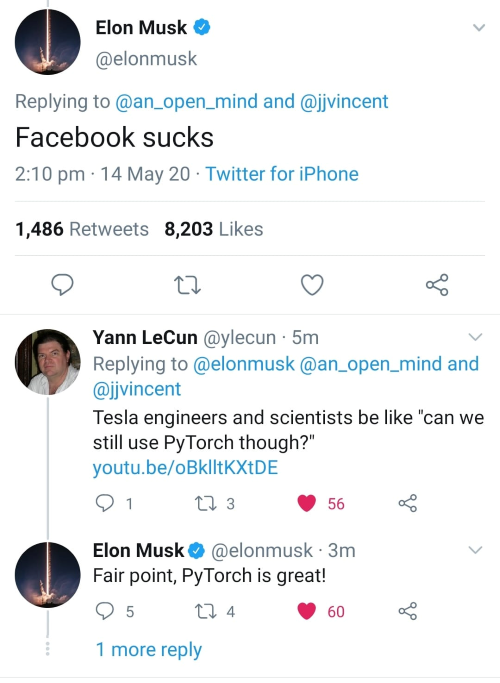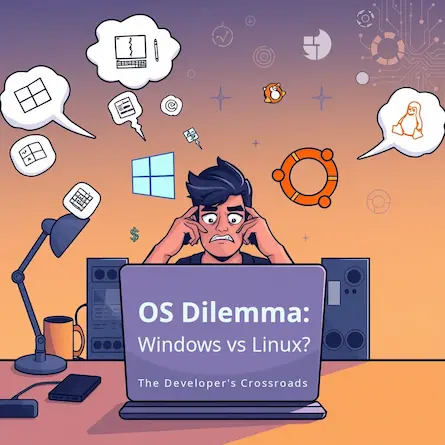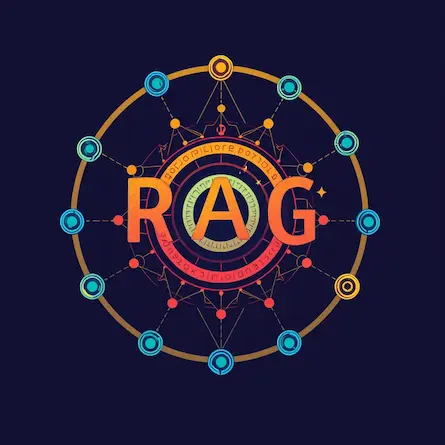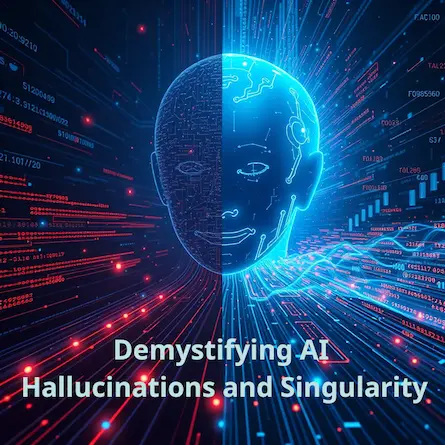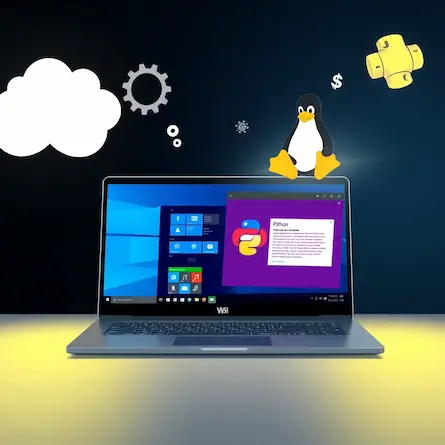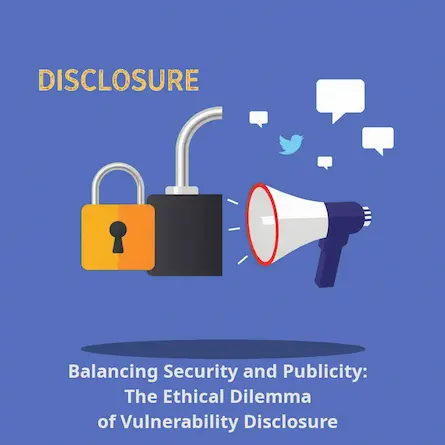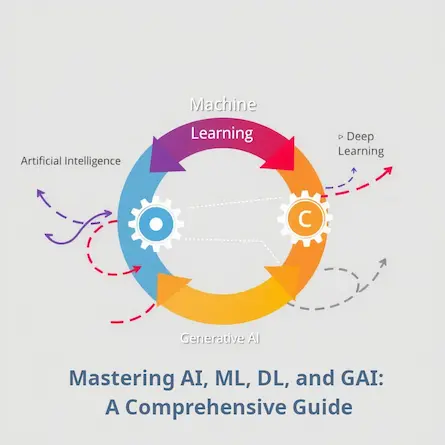
The Clash of Titans: Musk vs. LeCun on the Nature of Science
- Ctrl Man
- Science , Technology
- 29 May, 2024
The Clash of Titans: Musk vs. LeCun on the Nature of Science
In a recent exchange that went viral on X/Twitter, Elon Musk, the visionary behind SpaceX and Tesla, and Yann LeCun, a leading figure in artificial intelligence and Chief AI Scientist at Meta (formerly Facebook), clashed over what defines legitimate scientific research. The debate sparked a crucial question: What makes scientific research valid in today’s fast-paced world of innovation?
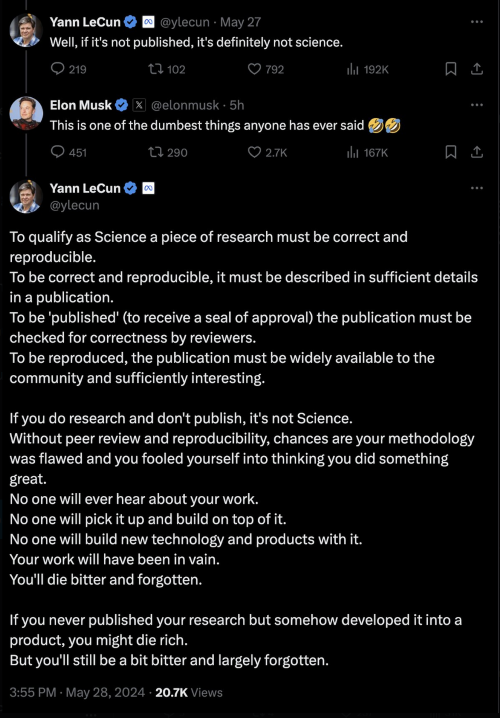
What Counts as Real Science?
At the heart of the debate lies a crucial question: Can traditional lab tools like “beakers and Petri dishes”* still be considered the sole symbols of real science? Or has the rapid pace of innovation rendered these symbols obsolete? LeCun argues that peer review and publishing in reputable journals are essential for scientific rigor, ensuring that research is reproducible, accurate, and open to scrutiny. Musk, on the other hand, is skeptical, wondering if the slow pace of academic publishing actually holds back the rapid development of new technologies. Elon Musk seems arguing on X/Twitter that traditional academic publishing hinders the advancement of artificial intelligence research. He would call for a reevaluation of how scientific research is shared and validated.
The Pitfalls of Skipping Peer Review: Tesla and Archimedes
History shows us that the recognition and ability to build on scientific work often depend on established conventions of documentation and peer validation. Nikola Tesla and Archimedes, despite their groundbreaking contributions, faced challenges in gaining full appreciation during their lifetimes. Tesla’s unconventional approaches and personal conflicts often led to his work being overshadowed, while Archimedes’ manuscripts were lost or not widely disseminated. These examples illustrate that factors beyond the inherent value of scientific work—such as access to proper channels and historical context—can significantly impact its recognition and legacy.
Balancing Innovation and Scrutiny
Musk’s viewpoint might reflect a more practical approach where the end results—practical applications and real-world outcomes—matter more than the traditional academic path. This highlights a tension between the need for fast innovation and the need for thorough scientific scrutiny. As LeCun seems to counter, that rapid innovation is great, but not at the expense of scientific rigor.
Tech Industry vs. Academic Research
The disagreement between Musk and LeCun also shines a light on a cultural divide. The tech industry, driven by rapid innovation, often clashes with the slower, more methodical pace of academic research. This clash represents a broader debate within the scientific community.
The Future of Science
As we push the boundaries of what’s possible, it’s crucial to engage in these debates—they shape the future of scientific endeavors. Will this debate lead to more collaboration between tech companies and academia? Will traditional academic publishing adapt to the rapid pace of innovation? The future of science depends on our ability to balance innovation with scrutiny.
Now it’s your turn: Do you think scientific progress is hampered by traditional methods?
The public nature of this debate, playing out on social media, shows how scientific communication is changing. Platforms like Twitter have become spaces for discussion, shaping how scientific ideas are debated and shared. As Jeremy Stamper’s sarcastic comment about “beakers or Petri dishes” highlights, humor and rhetoric can challenge prevailing notions while keeping the conversation engaging. This public sparring isn’t a new phenomenon; it echoes the lively debates that took place in the agoras of Ancient Greece. Philosophers like Plato, Aristotle, and the cynic Diogenes (famous for living in a jar and critiquing societal norms) would gather in these public squares to discuss and often mock each other’s ideas. In a way, Twitter functions as a modern-day agora, facilitating the exchange of ideas and good-natured (or not-so-good-natured) jabs, all in the name of advancing knowledge.
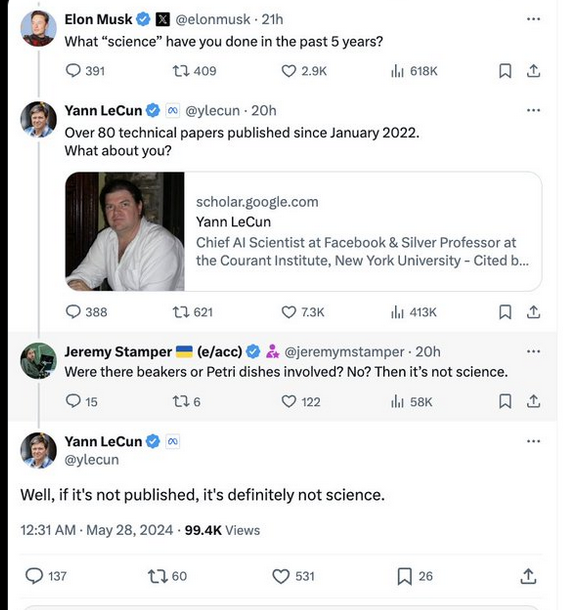
Post Scriptum:
It’s interesting to note that Elon Musk and Yann LeCun have a history of public discourse on social media. In May 2020, for instance, their Twitter exchange regarding Tesla engineers and PyTorch demonstrated a respectful and collaborative tone (see image below). This contrasts with their more recent disagreements, highlighting the evolving nature of online scientific discourse. While public debate can be a valuable tool for advancing knowledge, it’s important to remember the importance of respectful dialogue, even in the face of disagreement.
